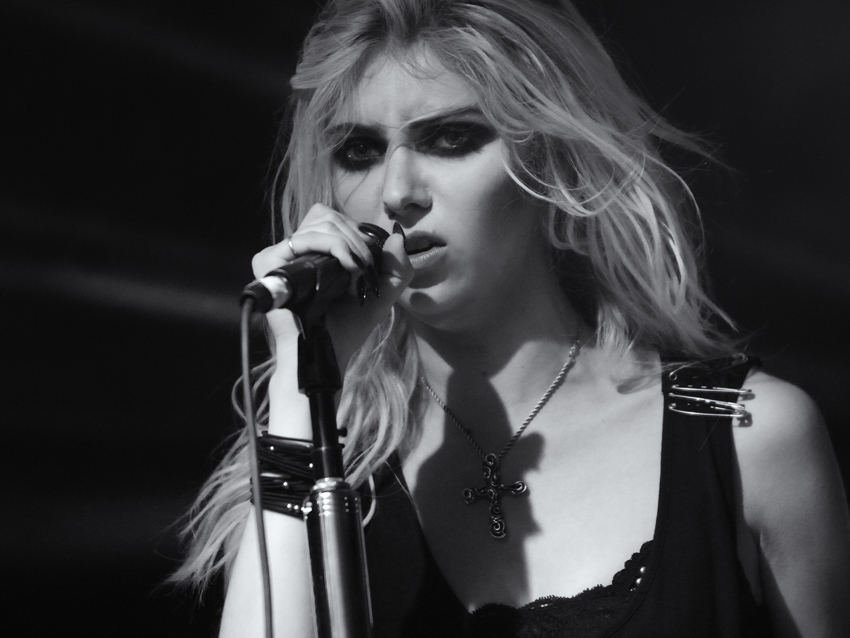
The Pretty Reckless' Taylor Momsen on guitars, writing and saying goodbye to acting
Bad news for anybody hoping to see Taylor Momsen make a return to acting. The onetime star of TV's Gossip Girl, who walked away from the show in 2011 to focus on her band, The Pretty Reckless, says that music is her primary focus from now on.
“Acting really isn’t something I’m pursuing," she tells MusicRadar. "I quit acting almost five years ago, and you could say that was always my intention. Acting was always, for me, a day job. It’s something that paid the bills – that’s how I viewed it. To try to predict the rest of my life and what I’ll do far into the future is kind of insane, but no, acting isn’t what I’m pursuing at all.”
Fans will, however, get plenty of chances to see Momsen rocking out on stage with The Pretty Reckless (which also includes guitarist Ben Phillips, bassist Mark Damon and drummer Jamie Perkins): The band is booked solid throughout the fall, playing dates in the US and the UK, in support of their recently released second album, Going To Hell.
Before hitting the road, Momsen sat down with MusicRadar to talk about recording during a hurricane, her guitars and amps, her favorite male singers and her view that "rock is dead – it’s just resting."
How does the fantasy you might have had about fronting a rock band jive with the reality of really doing it?
“Well, you know, I grew up in this business, so I always understood the business aspect of it, that it is a business, an industry. I think that can be the first and biggest shock for anybody getting into this. So I kind of got that out of the way with early and continued doing what I did. For me, it’s always been about making the music I loved and focusing on that, and keeping the business end of it as minimal as possible. [Laughs] For somebody who’s looking to get into this, it’s probably not what you imagine. It is a business. That’s just something you have to learn to navigate as you go along.”
Even though you're not acting anymore, I'm curious: What are your feelings about actors who pursue music? Some do it more seriously than others. Some do it better than others…
“You know, there’s always going to be preconceived notions whenever an actor tries to do something other than what you know them for. Like I said, for me, I never considered myself an actor – I was a musician who just happened to be on a TV show. I didn’t think what I was doing was different, but I guess the world sees you on TV every week as a character, so that’s what they think. Then you go, ‘Hey, I’m actually a real person. I’m not who you’re watching on television.’ It can be confusing. People are very harsh and quick to judge at the beginning.
“But again, I haven’t acted since the band’s been together. We’ve made two records, toured a lot, established ourselves – I think the TV stereotype has gone away quite a bit. The people at the shows are there for the music. They’ve bought the records and have listened to the songs, connected with them. That’s all you can ask for, really.”
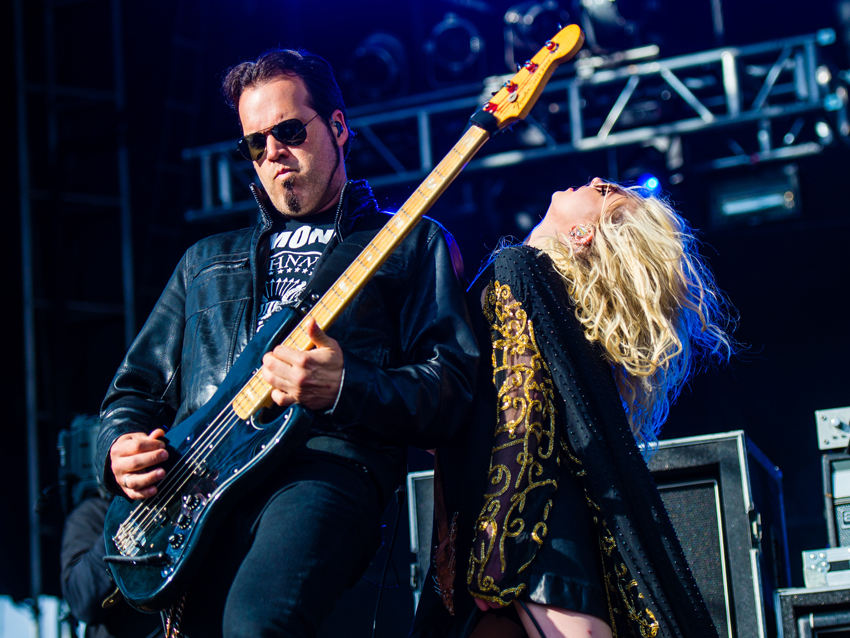
On playing festivals
You recorded the new record at Water Music in Hoboken, where I used to live. Did you like the town?
“I did, I did. And Water Music is great. We had done a couple of songs there before and thought the place had a really good vibe. Our producer, Kato [Khandwala], took the B room and kind of redid it to our specs; the whole thing was very cool and beneficial to what we were doing. We vibed and clicked really well there.
“But then, of course, we had a massive problem when Hurricane Sandy hit and took out the studio in the middle of the recording process. That was pretty devastating; it was a big jolt to all of us. We had to stop everything. There was a power outage in New York, the studio was under water – it was a huge mess. That took a bit of time for us to rebuild, so we went to another studio in Lake Hopatcong [New Jersey] called The Barber Shop. But we ended up back at Water Music once they rebuilt the studio, and we recorded Fucked Up World – that’s the last song we did for the record. I love Hoboken. It’s got a great energy and a really cool creative vibe to it.”
There was a total switch-up in the band from 2009 and 2010, when you started playing with Jamie, Mark and Ben. What were the issues with the old band, and what did you think was right about the new one?
“There were no issues with that band, but it wasn’t really a band – the band. I had never toured, so when I started working with the band, I met Kato, our producer, and then I met Ben. Ben and I started writing songs together. At the time, I had never been on the road. So some friends of mine were in a different band and I had some songs that I had written, and I wanted to get them road-tested, so we went on the road as friends. It was really, like, two weeks in a van.
“That was more about me getting my chops and putting some shows under my belt. God, that feels like ages ago! [Laughs] Mark, Jamie and Ben were already in a band together and were playing shows, so the timing wasn’t quite right; everybody was doing some different things. It took a minute to get to that place, of the band being the four of us – me, Mark, Ben and Jamie.”
We did an interview with Jamie recently, where he talked about performing for festival crowds and having to “dumb down” his playing a bit – that the nuances can get lost through big PAs and such. Do you find that you have to do that, as well?
“I don’t know, really. You work off the crowd and energy of the audience, and that can change night to night. And yeah, the sound changes, too, sometimes quite a bit. The venues are different – sometimes you’re inside, sometimes you’re out. But I tend to just get on the stage and crank it out and give it my all. I’m half-blind anyway, so I can’t see past the first row. Festival shows can be tough: You’re lucky if you get a line-check, so you go on stage and hope that your shit even works. [Laughs] Those things can throw you a bit; there’s lineup changes at the last minute, all things of things.”
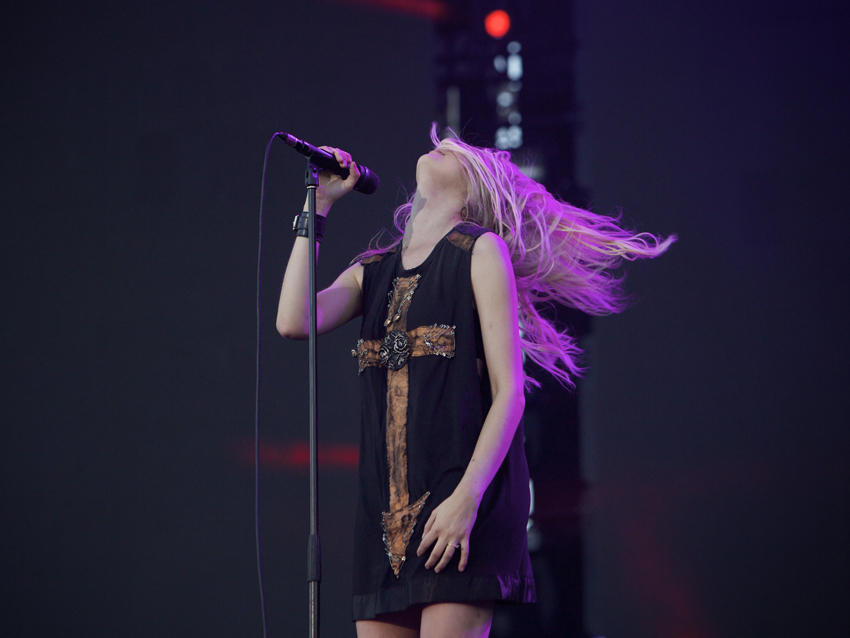
On rock's future
Last year in Rolling Stone, you said, "Rock & roll needs to make a resurgence.” It’s a year later – do you think we’re any closer to seeing that?
“Hard to say. But you know, I don’t think that rock is dead – it’s just resting. [Laughs] It’s been around since the beginning of time – well, a long time. But to say that rock is dead is like saying that the blues is dead, which is isn’t. The blues has been involved in practically every type of music. Right now, there’s not a lot of rock bands; rock isn’t the most popular genre at the moment. But let’s face it: Rock is cooler than anything. After a while, aren’t you gonna get sick of listening to music from laptops? Don’t you want to listen to a real musician playing some stuff?
“I think pop music has always existed, and rock comes and goes as bands come in and take over. It’s cyclical. In the ‘50s, it was a singles market, and then in the ‘60s you had rock bands with electric guitars that wiped out everything. Records, albums became important. That continued throughout the ‘70s, but in the ‘80s bands went back to working with songwriters. Rock molded into pop, but then the grunge scene came and wiped out all the other stuff.
“So now we’re back to the singles/pop/disco thing. I’m waiting for the rock resurgence – you know, fuckin’ freedom. [Laugh] Rock ‘n’ roll is freedom. We’re trying to be a part of that. I don’t know if it’s happening yet, but we’re moving in that direction. There’s bands – they’re not heavy rock bands – but they’re playing actual instruments. There’s a lot of acoustic guitars, but they’re still guitars. [Laughs] I think people are looking for something with a little more depth than just going to the club.”
It’s a funny thing. Whenever a girl fronts a rock band, people ask, “Do you think you’re a role model for other girls?” But we would never ask a guy that. Who ever asked Chris Cornell, “Are you a role model for other guys?”
“Yeah, but Chris Cornell is my role model! [Laughs] I know what you mean. I just don’t like the term ‘role model.’ Or maybe I don’t like it when it relates to me. Because I’m not a role model – I’m a musician. If you like my records and things I create, and if that inspires you or connects with you, then I’ve done my job. Great. That’s a great, great feeling. My personal life and what I do as a person aren’t things to be emulated, because I’m just a human being like anybody else.”
But now that we’re on the subject, who are some of the male rock stars who influenced you? Because I’ve seen you talk about female rockers – John Jett, Debbie Harry, Courtney Love…
“It’s pretty much all of them. John Lennon, Robert Plant, Dylan, Neil Young, Roger Waters – all the greats artists and great bands. Jim Morrison, Kurt Cobain, Eddie Vedder, so many. I grew up listening to male-dominated music, so a lot of my idols and people I looked up to are guys. There weren’t a lot of female-fronted rock bands; there still aren’t.”
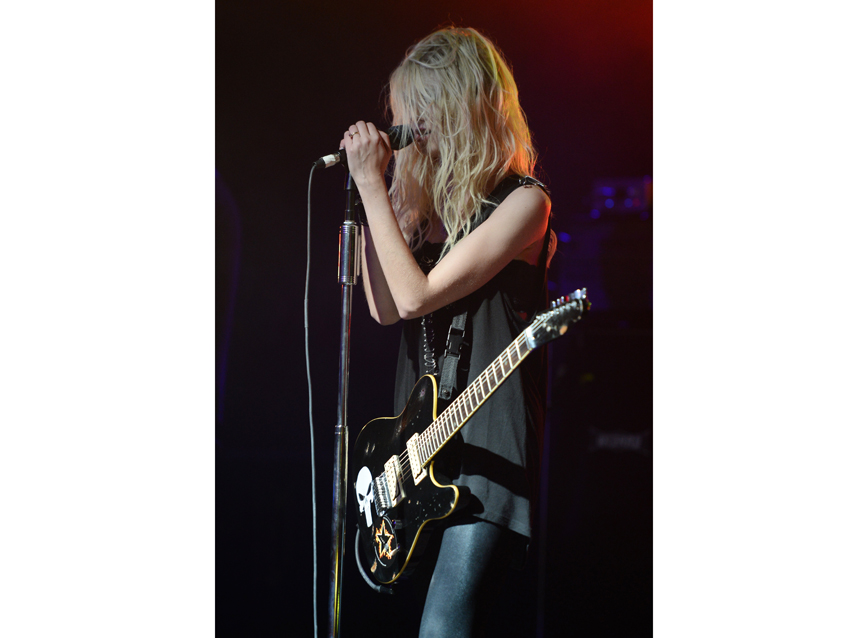
On her guitar playing
I’ve seen you play mostly Telecasters.
“That’s right.”
What do you like about Teles so much? Have you always played them?
“I started on acoustic guitar – actually, I started on piano, probably when I was five or six. My first electric was a Strat. I alternate between Strats and Teles, but I prefer Teles live. The one Telecaster that I always go back to is called ‘the Punisher.’ It’s got a big Punisher sticker on it. The tone knob is broken off, so it’s only got the volume knob. It’s simple and easy to play, but it's got such a great tone. I always go back to the Punisher.
“I’ve got some other guitars. I’ve got a gold Strat, a green Strat, and let’s see... a 1973 black Strat. That one’s amazing. I won’t tour with the '73 because I’m too scared that it’ll break. I’ve got a pink paisley Telecaster and some Guild acoustics. We’ve got a lot. [Laughs] We have, like, six storage spaces, and half of the guitars are locked away and the others come with us to our rehearsal space.”
Amp-wise, what do you like?
“We all use Wizard amps – they’re the boutique series by this guy named Rick St. Pierre. He custom builds them, and they’re like the loudest amps ever. They’re very specific, but I’m not kidding when I say they’re loud. We have problems sometimes getting the PA to be heard over the amps onstage – they’re that loud.”
Are there any areas of your guitar playing you’d like to improve?
“Oh, yeah. I’m working on fingerpicking right now, actually. It’s a different type of skill, so I’d like to get that going. But I’m not a lead guitarist by any means. I’m not planning on taking any solos any time soon. [Laughs] I’m more of a rhythm player than anything else. I use the guitar as a tool for writing.”
Is there any kind of pattern to your writing? Do you start with riffs or with titles and some words? Or is there no pattern? Is it always kind of a surprise how it happens?
“There, you just said it: It’s like a mystery… a torturous, never-ending process. You start with nothing and you hope that something will inspire you. Whether it’s a riff, a lyric or even just the way you play an E chord, you never know where the inspiration is gonna come from. That’s the hardest part – the waiting for magic.
“For example, Heaven Knows, the first single from the record, that was supposed to be just a little musical interlude. It started as chorus, a hymn – like a church hymn. As we kept writing for the record, the song developed into what it is now. So you never really know. You can try to work through it, but you have to be patient and let the song come to you. Both ways of working are stressful, but when the magic does come, when you’re on your way to writing something and you know it’s good, that’s pretty amazing. It’s worth all the effort.”
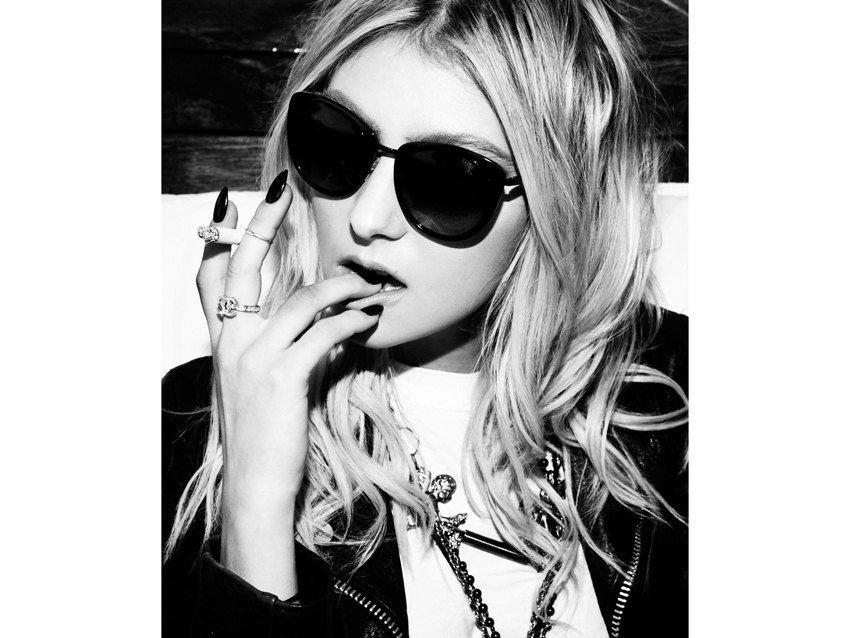
On making albums
There was a four-year gap between the first album, Light Me Up, and Going To Hell – although you did issue an EP [Hit Me Like A Man] in 2012. I assume you don’t wait to wait quite so long to do the next album.
“Well, we’re always writing – that never really stops. The gap between the first album and Going To Hell might have felt long, but we toured for two and a half years. Then when we went to do the second record, there was the hurricane, so we had that tragedy, and then we switched record labels – there was a lot of drama and hold-ups that we couldn’t always control.
“I’m definitely hoping the next record can come faster, but at the same time I don’t want to rush something out just for the sake of it. I want the next record to be perfect and something I want everybody to hear. I don’t want to put any kind of time pressure on this. If it takes another four years, then that’s what it takes. When you’re finished with a record, you should feel like there’s nothing you want to change on it at all. Done means done.”
The Pretty Reckless' Going To Hell is available at iTunes, Amazon and MerchNOW. For the band's full tour schedule and to purchase tickets, visit their official website.
Joe is a freelance journalist who has, over the past few decades, interviewed hundreds of guitarists for Guitar World, Guitar Player, MusicRadar and Classic Rock. He is also a former editor of Guitar World, contributing writer for Guitar Aficionado and VP of A&R for Island Records. He’s an enthusiastic guitarist, but he’s nowhere near the likes of the people he interviews. Surprisingly, his skills are more suited to the drums. If you need a drummer for your Beatles tribute band, look him up.
